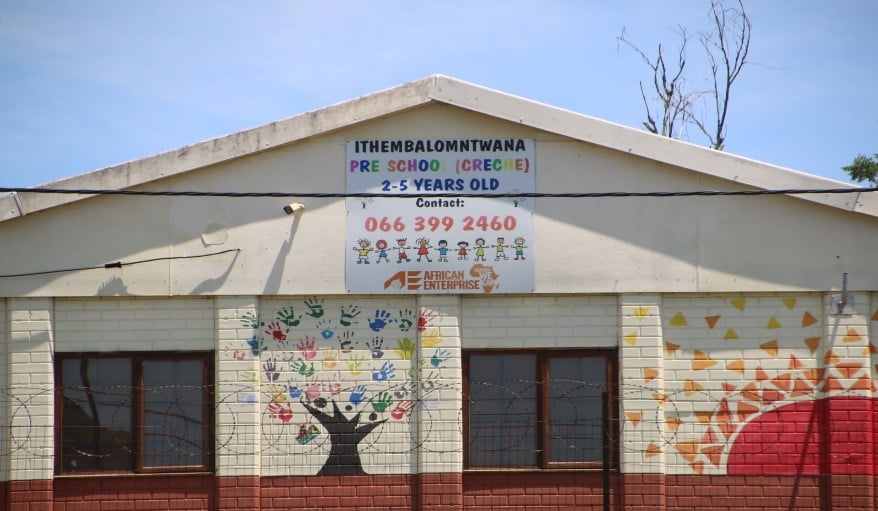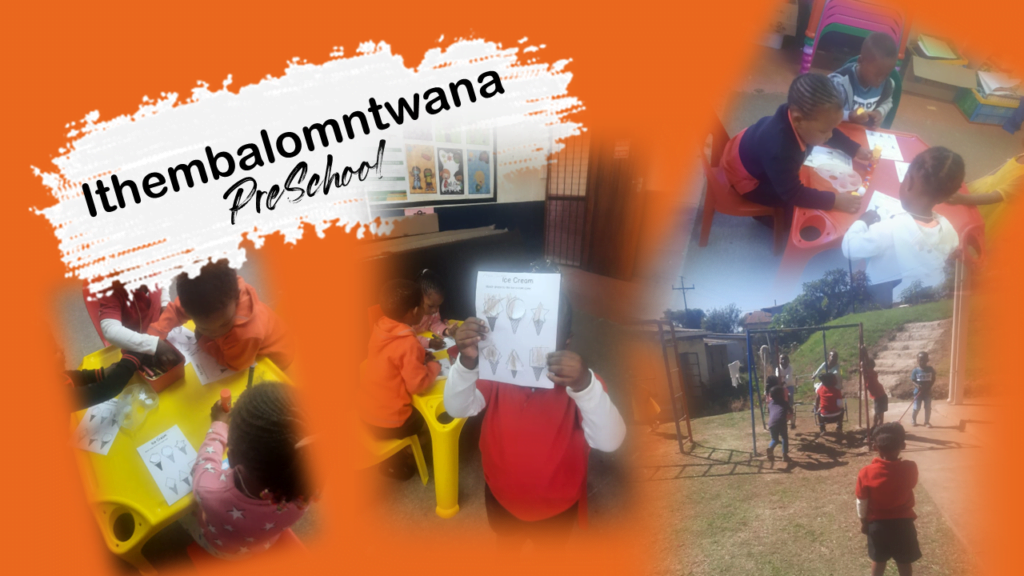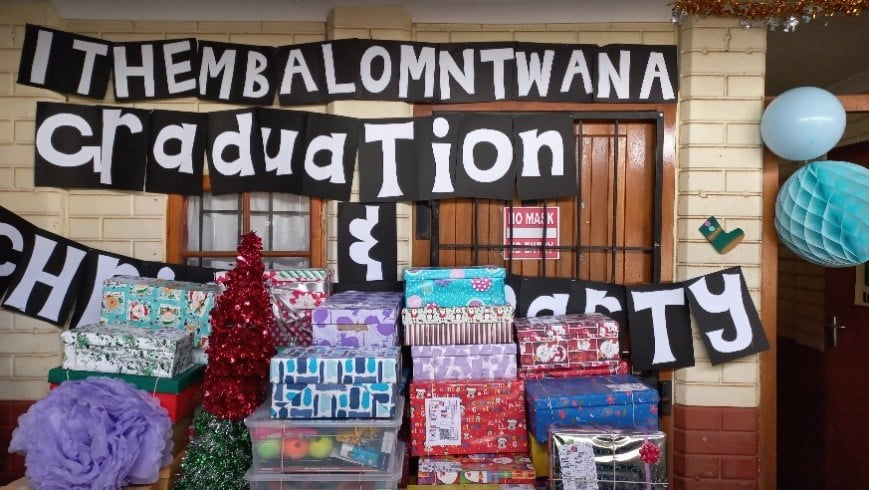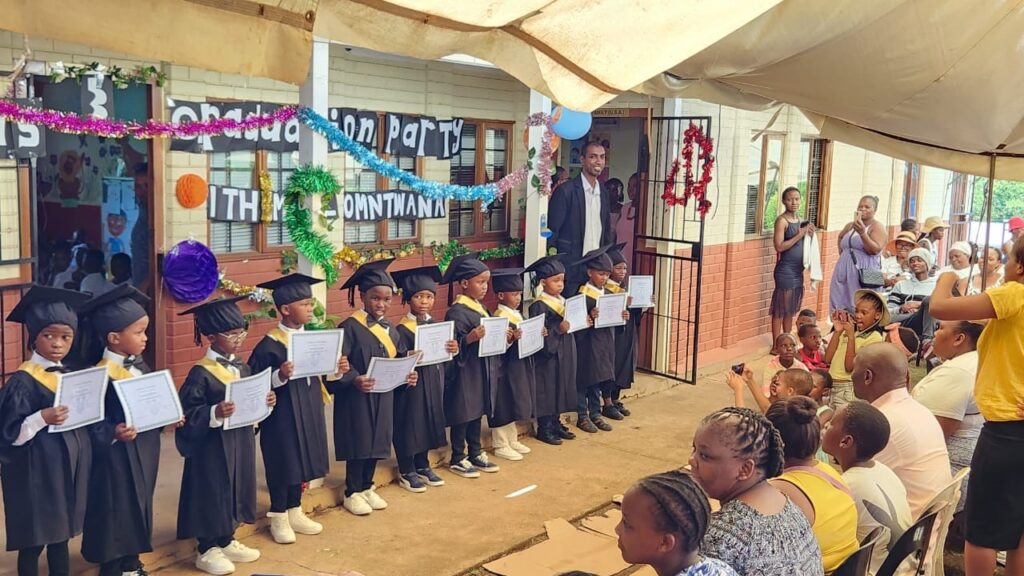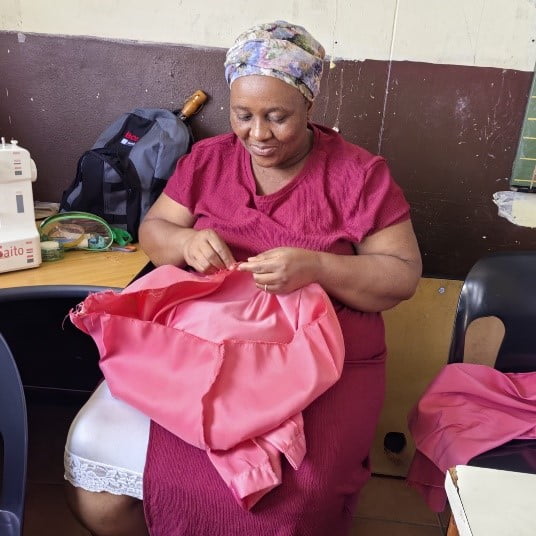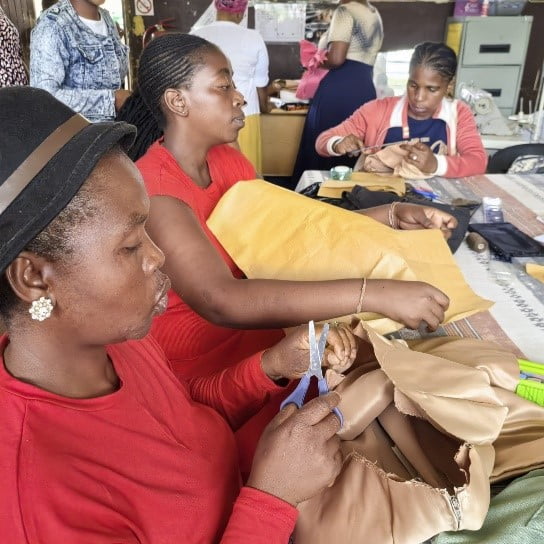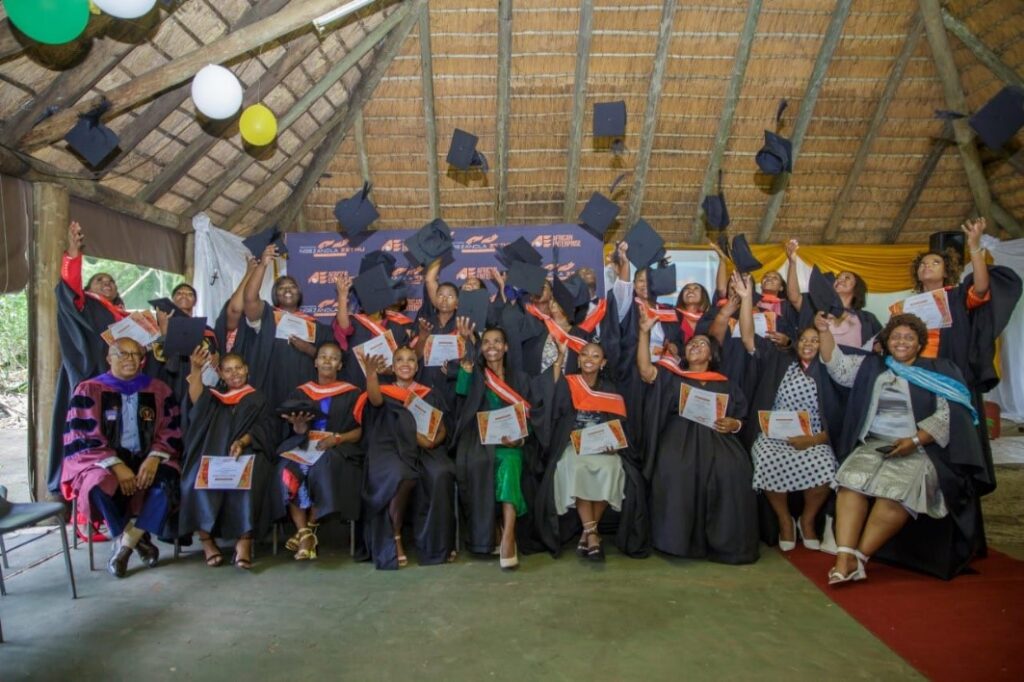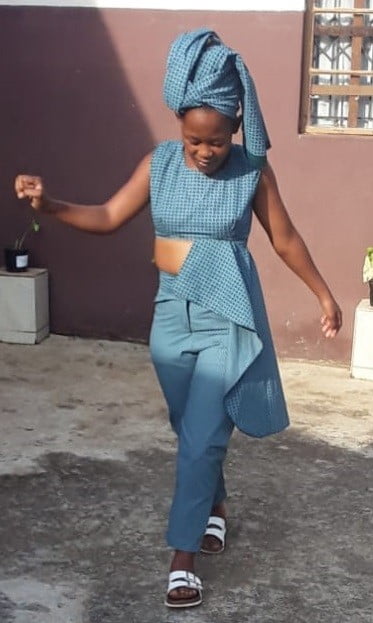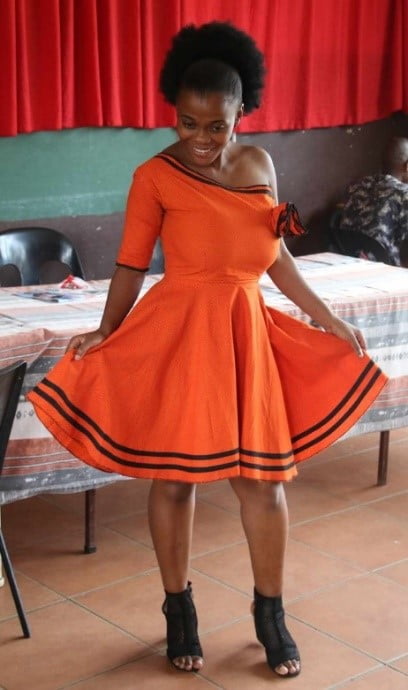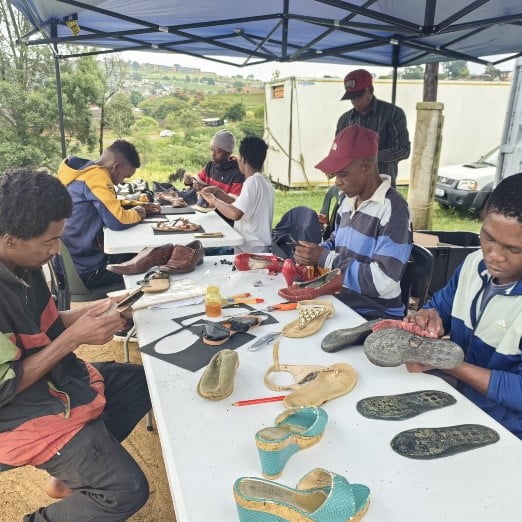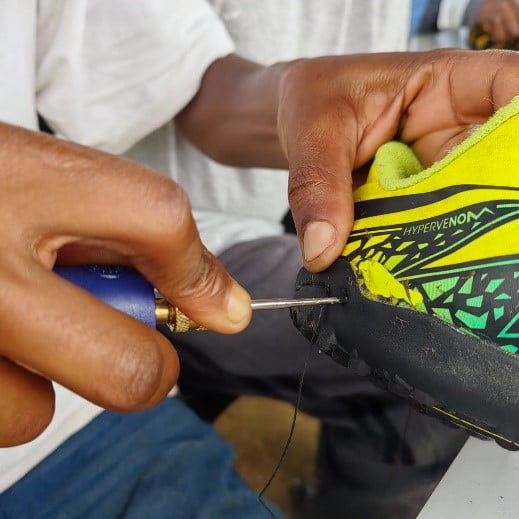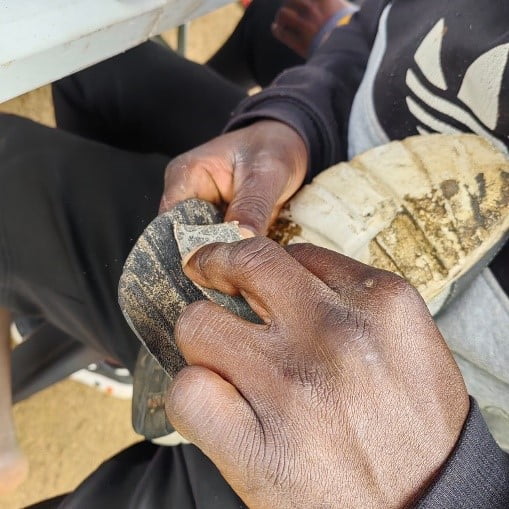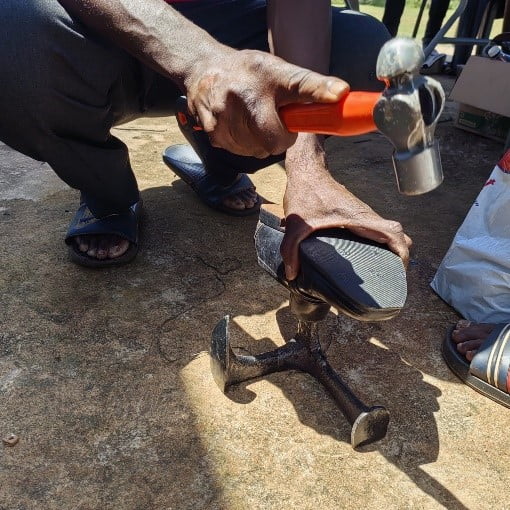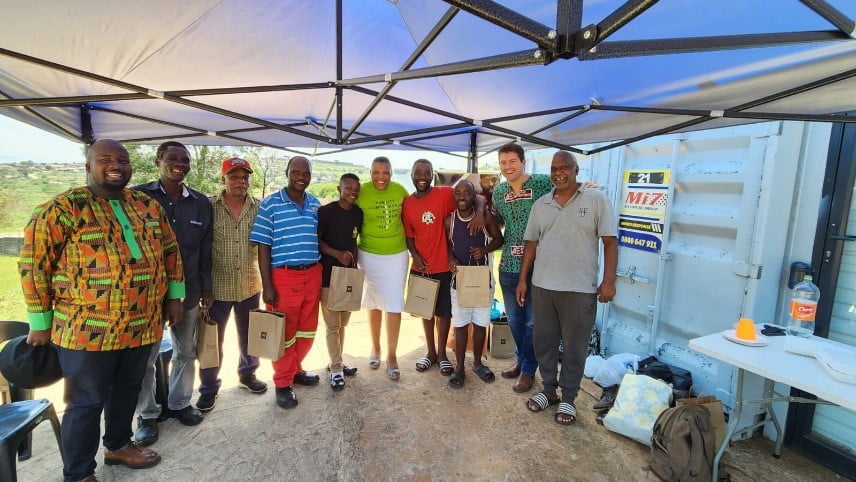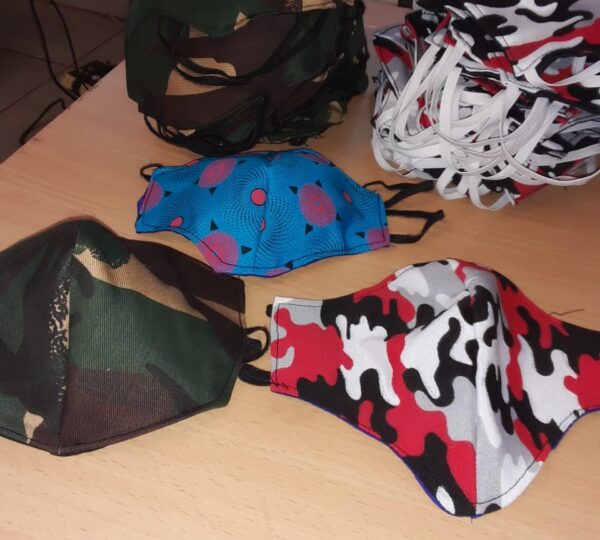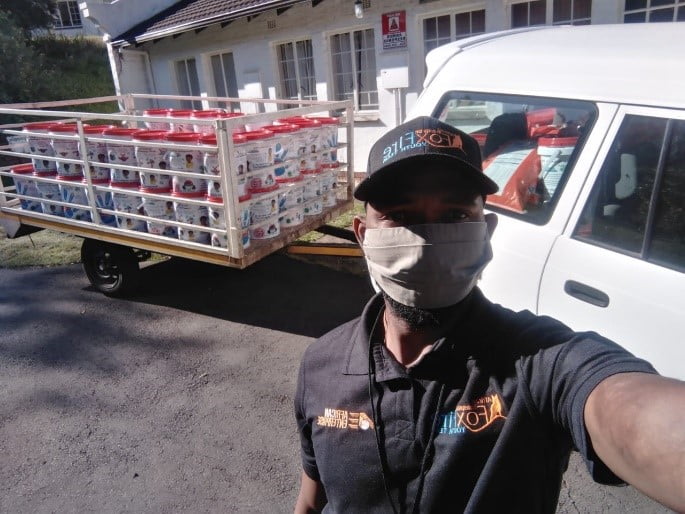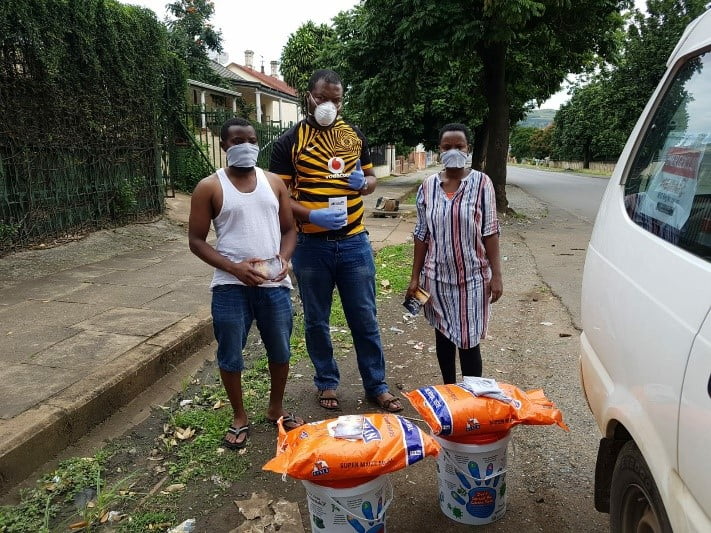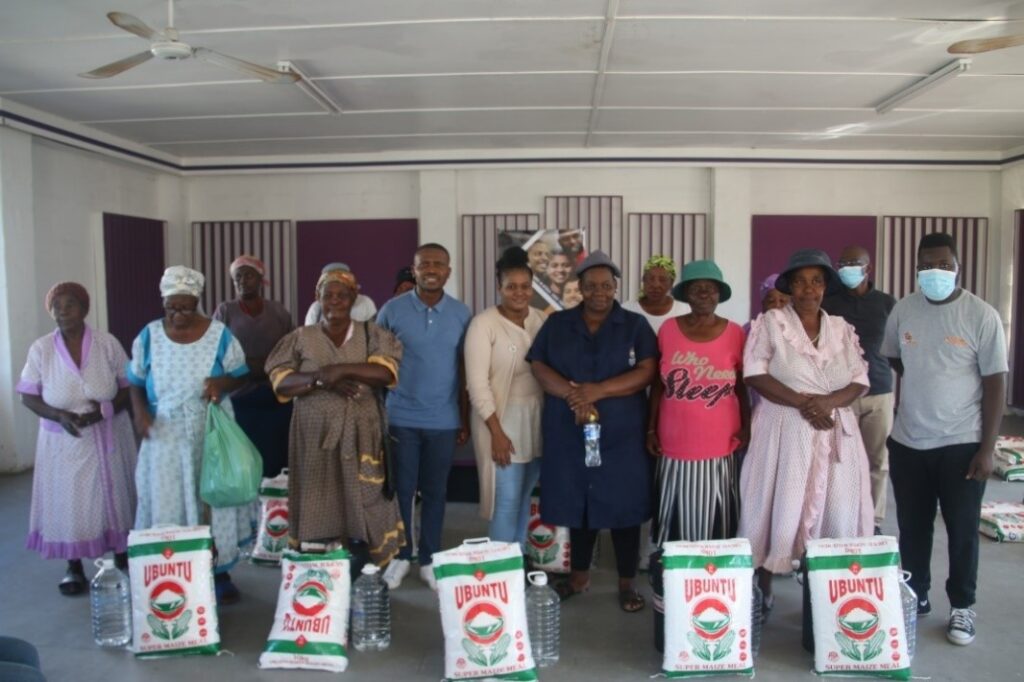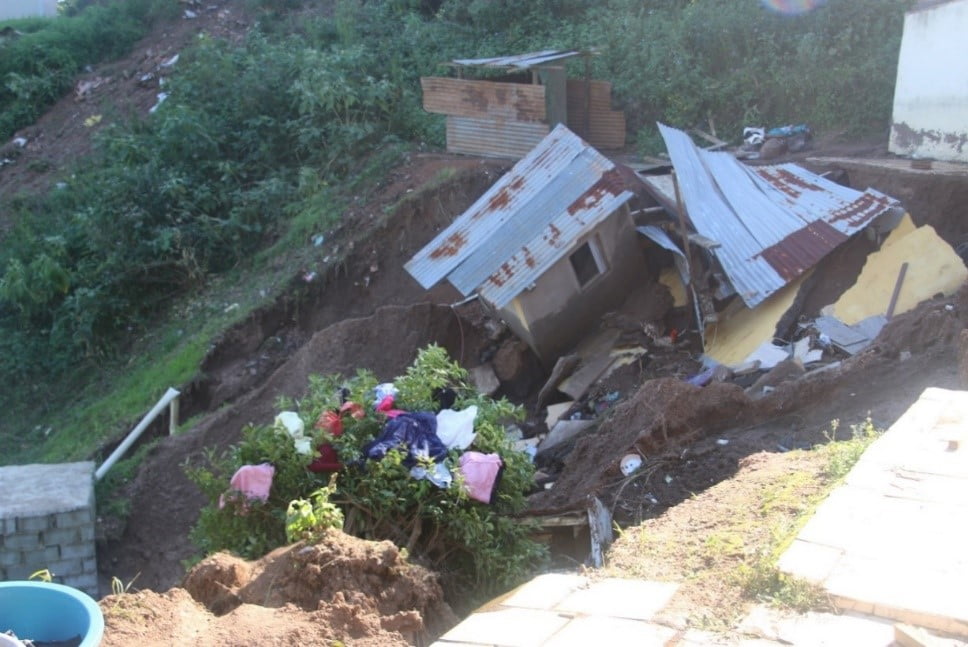BONGINKOSI Self-help Project
Bonginkosi, which means “Thank the Lord” in isiZulu, is an AE community transformation self-help project that empowers community members in Sweetwaters (a township on the north-western outskirts of Pietermaritzburg, KwaZulu-Natal, South Africa) with skills towards economic development by training them in such arts as candle-making, knitting woolen blankets and weaving house mats – all from raw materials. The project is dynamic changing focus regularly in attempting to uplift the community as their need dictates. Advancing food security is a current goal as the community is increasingly burdened by the escalating cost of living and AE will be assisting with training the community to establish home veg gardens.
The project was originally called the Bonnkosi Child Enrichment and Feeding Scheme and was run as a soup kitchen by AE. It was started in 1972 at Nichols Primary School in Edendale (a township south-west of Pietermaritzburg) in response to the sad and stark reality of the extent of starvation amongst the school children when the school’s headmistress of the time, Ms Daphne Tshabalala, witnessed, to her horror, one of the learners scrambling to gather up the bread crumbs she had thrown to a dog to eat. AE, through team member Barbara Davies, partnered with Ms Tshabala to start the soup kitchen. The feeding scheme kept growing year after year. By 1978 the project was feeding over 1000 children per day and by 1990 the Bonginkosi feeding scheme was providing 10,500 children a day, in 51 schools throughout South Africa, with a cup of protein-enriched soup and a thick slice of bread. This ministry extended to provide health care, blankets and clothes, skills development, and the proclamation of the Gospel at every opportunity. Sadly, as a result of political violence which was particularly rife in Edendale, the project had to be abandoned as access into Edendale became far too risky.


